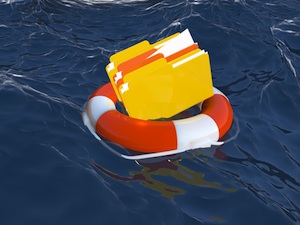
Disasters hit at the most inopportune times, not like there is ever an opportune time to have your small business hit by a natural disaster of any type. But just how prepared are you for the next fire, flood, hurricane or tornado? Maybe you believe you are well-prepared, but read on anyways- you may find that you’re not quite as prepared as you think you are.
Are you prepared for this?
Loss of power
Plan ahead and have a backup generator installed. If you experience power loss, there’s no reason to send all employees home for the day. It may seem logical to save money, but in all actuality, time is money. So you are actually losing money by not being prepared. A backup generator will pop on when the power goes down and will keep your business running until the power is back on.
Communication
If power goes down all over town, communication can suddenly become much harder. Cell phone towers may be rendered inoperable, landlines ruptured and internet networks down. Be sure to set up a plan and inform all employees of how to communicate if other options are down. It may be Facebook, Twitter, text messages or through a company website forum or mobile app. But make sure you have a plan ahead of time. There will be enough chaos when disaster strikes, confusion over how to communicate will only add to this disruption.
Can you continue working?
If your offices are underwater or otherwise unusable, you may have to find other means for a while. Plan ahead for this, have a backup location (or several) in case the company’s main office is not able to be used. Any employees that can work remotely should be informed ahead of time and all others will have to meet at backup locations or stay home. Just make sure your plan includes a solid backup plan.
Supply list
Having supplies should be a priority in case the disaster causes people to become trapped and they may be there for several days or longer. Create a supply list, fill it and store it where it will not be disturbed. If any of the items are perishable, write down dates on the supply list and keep it updated with fresh supplies as the end dates approach. Some suggested items for your emergency kit may include flashlights, phone chargers, blankets/ponchos, water, rubber boots, crank-powered radios, energy bars and, for a cheap light alternative, glow sticks will provide hours of light or signal usage for anyone trapped.
Employee preparation
Employee preparation is critical as there could be mass chaos if there is no organizational plan in place. A specific leader should be chosen to create order in a disaster situation. Specific emergency areas should be set up ahead of time for employees to meet and create a plan of action. Lists of employees should be handy so that everyone can be accounted for. The company can even take another step forward by enrolling employees in company-financed CPR and first-aid classes.
Data backup plan
A natural disaster can not only destroy your company physically, but it can destroy all data contained on the premises. All files in filing cabinets can be destroyed by fire and flood or whipped away by hurricanes or tornadoes. This is why all data should be stored in the cloud, or at least maintain digital copies of all data in cloud accounts. With your data stored on servers all over the country or even the world, the chances of the natural disaster hitting them all would be astronomical. And there is even another step that helps ensure that there is no chance of data loss.
CloudHQ takes all of your data that is stored in the cloud and backs it up to secondary cloud accounts. This will prevent any loss of data in case something happens to the main cloud account. Many businesses would go under and be unable to recover if they lose all of their data- legal documents, contracts, client information, billing and financial data, customer databases and much more.
Be prepared
The most important disaster policy is to protect the lives of people in your workplace. Secondly, your company data should be protected to ensure that your company survives after a natural disaster. An SBA study shows that 25% of all business that get hit by a natural disaster do not ever reopen. Be prepared so you do not become just another statistic. Plan ahead. Be sure to have solid backup plans for everything in case disaster happens to strike your small business next.